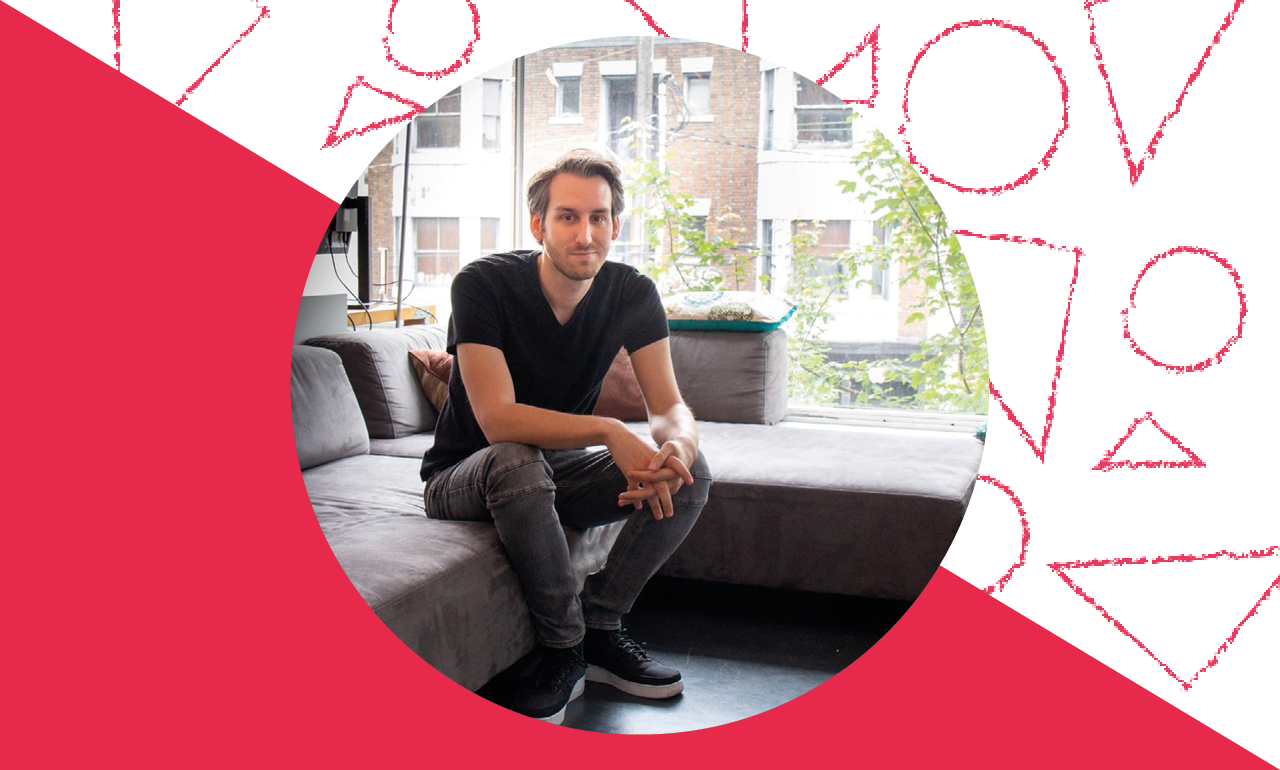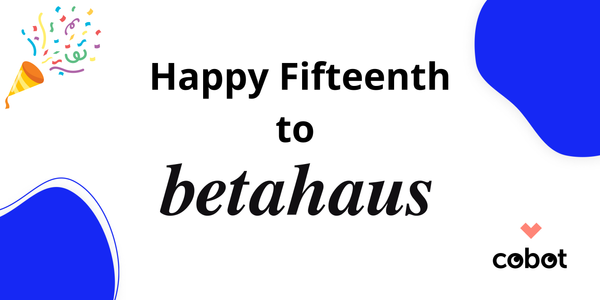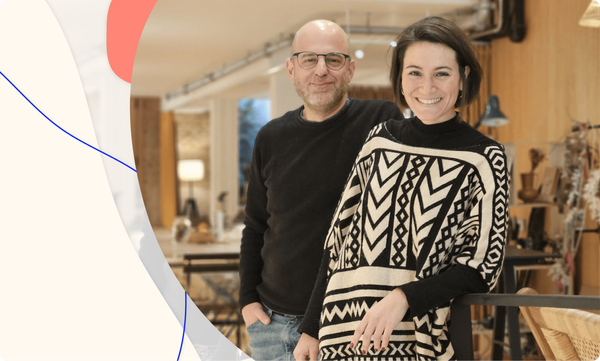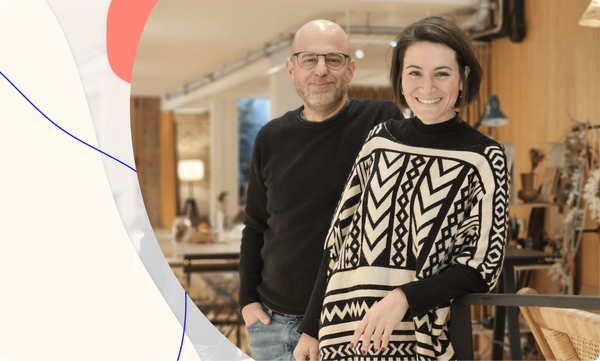Indies Workshop in Seattle is a home for independent video game developers and has been featured in outlets such as Polygon and GeekWire. They’ve also used Cobot since 2015! We spoke with Founder Christopher Floyd (seen here speaking at DevGAMM) to hear how he brought this workspace for indie game developers to life. This is an abridged version of our conversation.
Could you tell me about yourself and what led you to found Indies Workshop?
I moved to Seattle in 2014. I'd been to Seattle a couple of times for work, there's a bunch of [video game] studios here and companies and events, I liked the place a lot and thought it was really strange that there were all of these people but very little community. It felt like there was like very little cross chatter, particularly between the giant AAA companies like Nintendo, Valve, Xbox, and then the tiny minnows on the independent side, the area I was more affiliated with.
I was also working from home. This is before anyone really normally worked from home and I was pretty tired of it. I thought, I’ll bet I can find other people working in the game space that would also not want to work from home.
It was one of those things where I didn't think it was a good idea so much it was just a normal idea that no one had bothered to do.
I went through about a year of prep. I was working with two other friends who were also in the midst of moving their studio to Japan, which meant that the week that we opened our doors, they moved to Kyoto. I was left running it on my own, which was a bit frustrating and a bit tough at the time, but it probably worked out better that way.
We started in Sodo, which is a pretty uncool area of Seattle. Within a couple of months, Facebook opened an office right across the street from us. So I like to think that we kind of made that happen. I'm sure we didn't.
We were in this massive warehouse; it was very austere. Then about a year into that, two things happened.
One was our landlord told us they were gonna raise the rent by twice as much. But I also knew the building was about to be demolished, so I told them they could raise the rent to anything they wanted, and it didn't matter cause I wasn't gonna pay it. They panicked but it was too late—I’d already decided to move elsewhere.
[Two was] I had a friend who was sharing an office with a creative agency in Capitol Hill [a neighborhood known for arts and culture]. And he was like: “Hey Chris, do you want to maybe go halfsies on somewhere? We can have our own space; keep it all video game focused.”
That lasted for two years. Then he moved out and we moved into our current space, which was all the way across the hall from the one we started in.
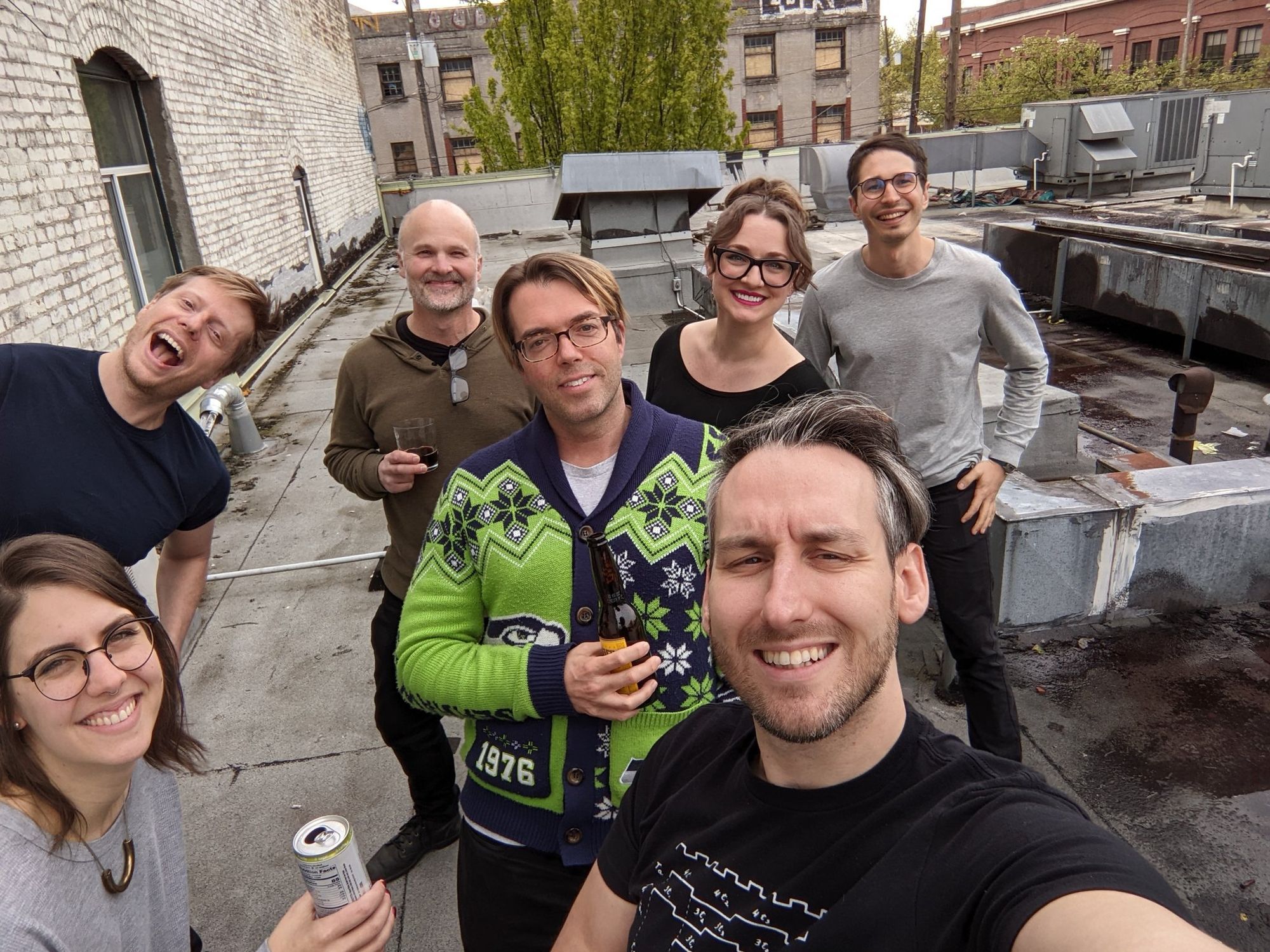
You've been around since 2015, what has changed in how you operate, and what makes you the right space for game developers?
Day one we had something like five or six people, which was pretty exciting. Not as many as I necessarily wanted to have, but I wanted to build up over time. We peaked at around 30 or so pre-pandemic, and then immediately that cratered everything.
One of my initial angles was that I wanted it to be a coworking space that was also a hub. We’d do talks, have lots of meetups, and if you're in this particular area of games, there'd be a reason for you to come on like this particular week. You know, build the idea of this being the place that if you're in town—you stop by.
It ended up just being [not feasible]. I mean, a combination of being in Sodo, which is just annoying to get to, plus it takes so much time to organize meetups. When we moved, we ended up thinking that we can't do any of that stuff anymore; maybe that's fine, maybe no one really cares. It turned out to be largely the case.
We always have gone out on Friday [as a community] since we moved to Capitol Hill, but the pandemic forced that into becoming more private. Rather than going to a bar or something, we'd just hang out in the office. And again, as you can attest to [I sure can!] going out is now the weirder one to do. Like, everybody just wants to hang out together and drink. And usually someone will bring a friend from some other studio or whatever. It's become pretty social.
I think it's still the best place to be working on games if you don't have to work at a big studio or something like that in the city, because as my friend who has been there since day one always says, people confuse the desk for the value.
It’s so incredibly useful to have a bunch of people around you who are all going through the same things, and are also in different stages of going through those things. You've got lots of levels of expertise. You can certainly get variants of that on a shared slack or discord or something, but it's pretty hard to beat person-to-person interfacing. Is that what they call it? Hanging out.
Yeah absolutely. I mean, you've also just pitched coworking, I think, as a general concept.
I will say that was like a big thing for me setting it up. I'd gone to a WeWork in San Francisco and I didn't really get it. It felt to me like a place where if you're in town somewhere and you had to do a meeting you bring your laptop and you have a place you can sit down that doesn’t feel as rude as hanging out in a coffee shop all day long. I was very inspired by when I first went to New York City and [saw] the garment district and all these little hubs of people coming together.
I like the idea of having an office [bringing that same experience] to independent developers in large groups. You know, everyone kind of wants to be siloed off in their own little worlds—but of course, they also want to be around other people and their teams are so small.
On the website we used to say “all the joys of working in a big studio minus any of the overhead of working in a big studio.”
I think that's really appealing. The best way to have a coworking space is to keep it as disciplinarily-focused as it can be.
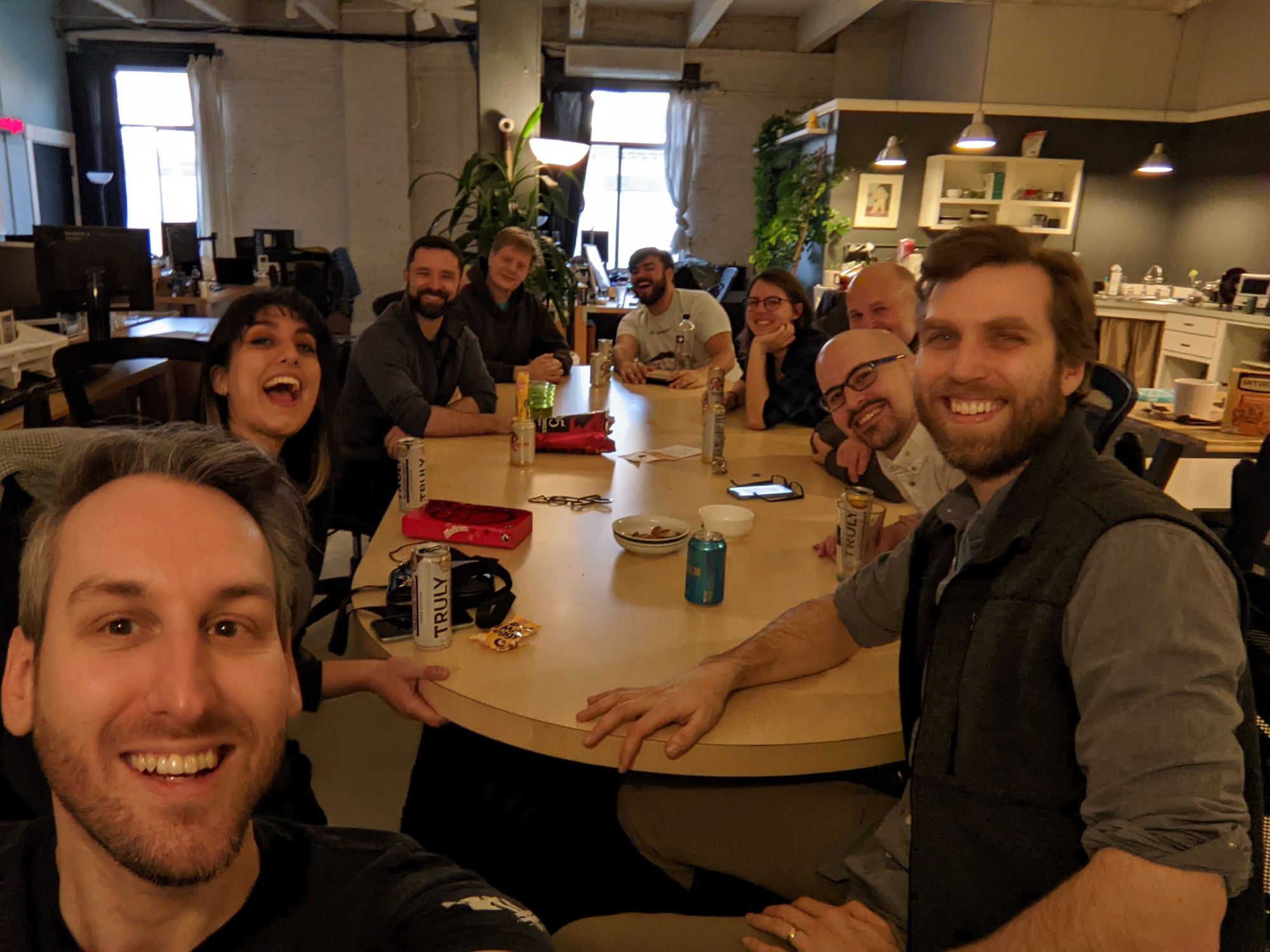
I think that's great perspective. I think the advantages of coworking are very clear-cut in an industry where big companies have lots of drawbacks, but there's a reason people still want to get into the industry. There's a reason why people still make games and there's a reason why people love it so much.
Yeah. And I mean the thing I've heard a lot with people who work at Microsoft or whatever is that they're like, oh, I'm not super psyched about, you know, whatever I work on—but I love my team and I love my manager. They're all really good people.
I think people forget that when you work around people you like, it's great. That's literally the most fundamental thing that anyone actually wants.
You know [people say] find a job you love, you'll never work a day in your life. I don't think that's necessarily true, but find a lot of people you like working with and your experience of work is so different than it would be otherwise. So yeah, that was the ethos.
And I mean, from a cynical, capitalistic perspective, having lots of people at the same creative discipline in the same room tends to mean that people want to stick around.
It feels less like “this is where I go when I have to do my meetings.” You want it to be, in a good way, a FOMO thing. [For example,] our friend Phil from the office got into foraging in the last couple years, so every now and then he just pings us on a Sunday and says: “Hey, is anyone gonna be in a Monday? I have five pounds of Morel mushrooms if anyone wants them.” What a perk!
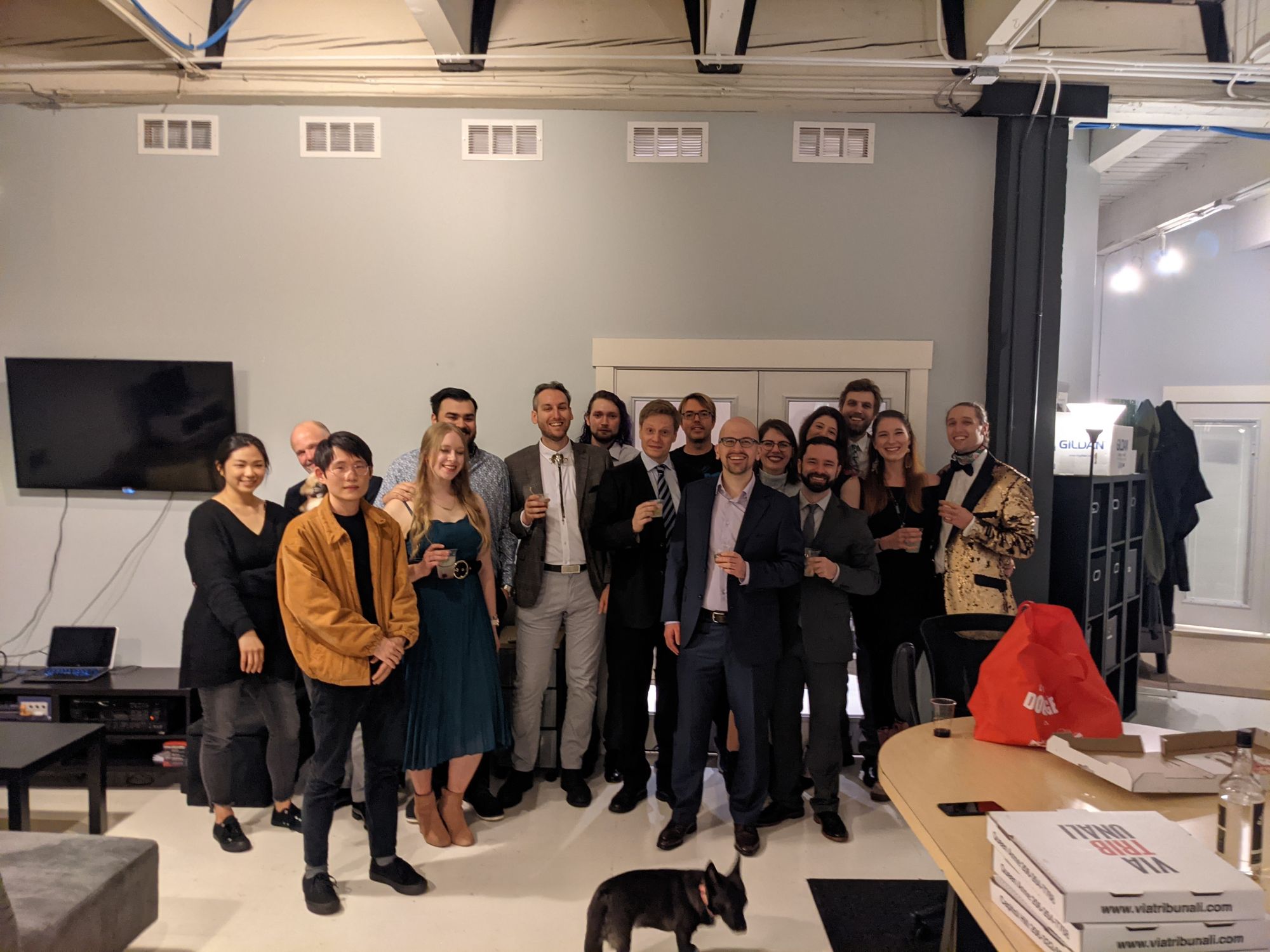
Do you have any other stories of people working in your space of the community, things that you think really exemplify? What makes Indies Workshop a great place to work?
Yeah, I mean, without wanting to be too self-promotional, I think could certainly lift a little bit of the story of Superliminal.
There was one guy making this game in San Francisco. He was part of a working space down there called Gamenest [since closed] and he decided to move up to Seattle. At the same time, Logan, who had been in our office since day one, had emailed Albert [the developer] and said, “Hey, I'd love to like, you know, get some ideas for things you could do with this.” Albert came up to the office for a sort of work playdate to figure out if they would get on well, and he moved up to Seattle after that.
They worked on the game toiling in relative obscurity for a while. I ended up coming on to help them finish the game. Mushroom-forging Phil was the graphics programmer. Alex, who I mentioned with the social capital stuff, he worked on all of our UI and controller implementation.
Of course you could find all those people all over the place; the internet has lots of people, right? But there's a pretty cool magic to spinning around in your chair and saying “hey, can you like take a look at this?”
I think it's fun to be able to say that we started in a big, weird warehouse, and fast forward four years, we ended up with one of the best-selling video games of 2021 or 2019 or something. From a bunch of idiots in an office in Seattle. That's pretty cool.
Could you talk a little about why you got into game development?
Oh yeah. I spent most of my teenage years and early twenties wanting to be a musician and of course, hugely succeeding at that in every way possible—as you know, I'm incredibly famous and well known as a musician. [I’d also] always wanted to work in video games.
I’d grown up in Ireland where as far as I was concerned I just thought all that stuff happened in Japan. I didn't even realize there was an industry anywhere else. I moved to the US and kind of thought, ah, you know what? It's a chance to try something new—why don't I just give this a shot?
There was an Activision-owned studio where I was living in upstate New York, which was, for context, incredibly remote and not a place where Activision would usually have a game studio.
I joined there working in QA [testing games], which is the least glamorous, least exciting area for video game development. I was helping with the Boston Festival of Indie Games and I ended up eventually transitioning into a thing called Indie Megabooth. That involved us helping small teams put big showcases on at major events, one of which was PAX West in Seattle. That’s where I was like, man, all these people are so cool and it's so fun to hang out with them. There should just be a way to hang out with them all the time instead of just one weekend in a year.
It was one of those things where I just thought like, this is not a cool or exciting idea—it just seems so obvious that it has to happen. So I guess I have to do it because no one else is. And that was it.
I think about a year after starting the office, I started feeling like I was more detached from [game development]. And then of course being surrounded by developers all day long made that a much easier transition than just going on YouTube and searching "how-to-make-games-for-living" or whatever.
Seattle's a very expensive city, so it's kind of funny to have a weird little pocket that's [full of] people who pretty staunchly don't consider ourselves tech people. I think [other people might] consider us tech people, even though we’re just are a bunch of people in an office that sit on computers all day and make things that are fun instead of like, email clients or whatever. Just seems just good to get people in a room together.
Are there any projects currently being developed by members of your space that you’d like to give a shout-out to?
Sure! Games currently in development at the office:
